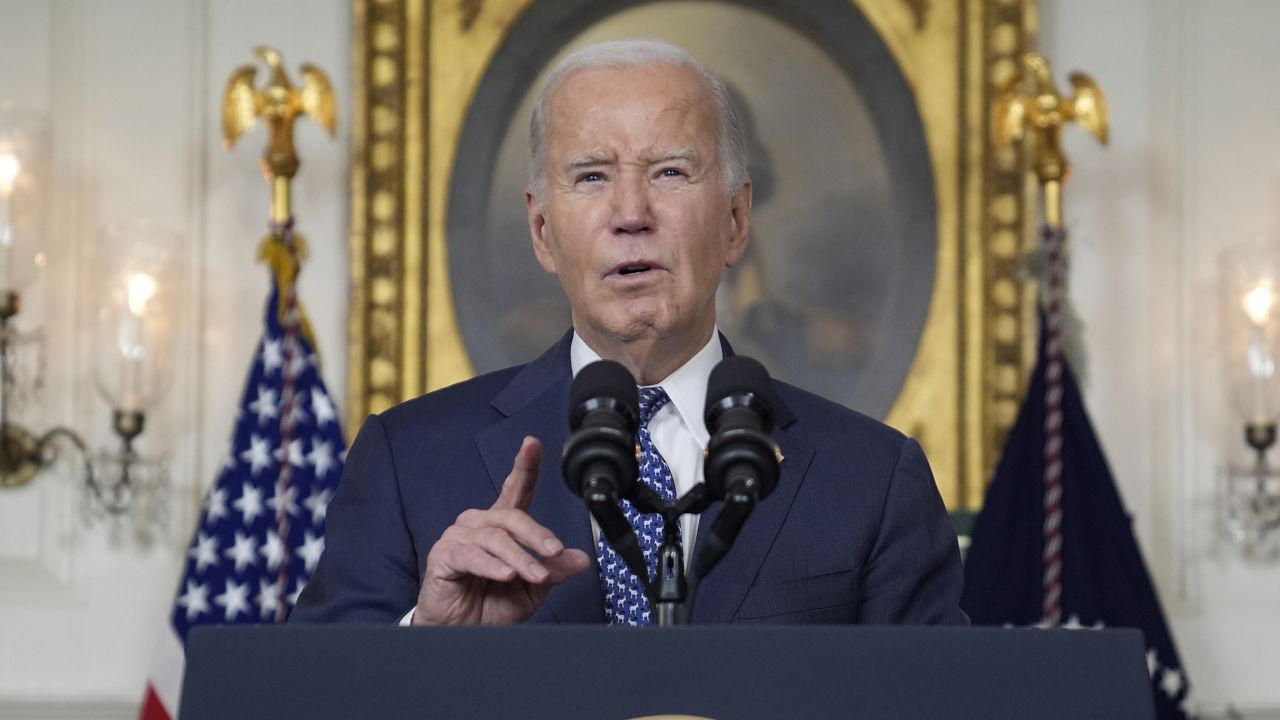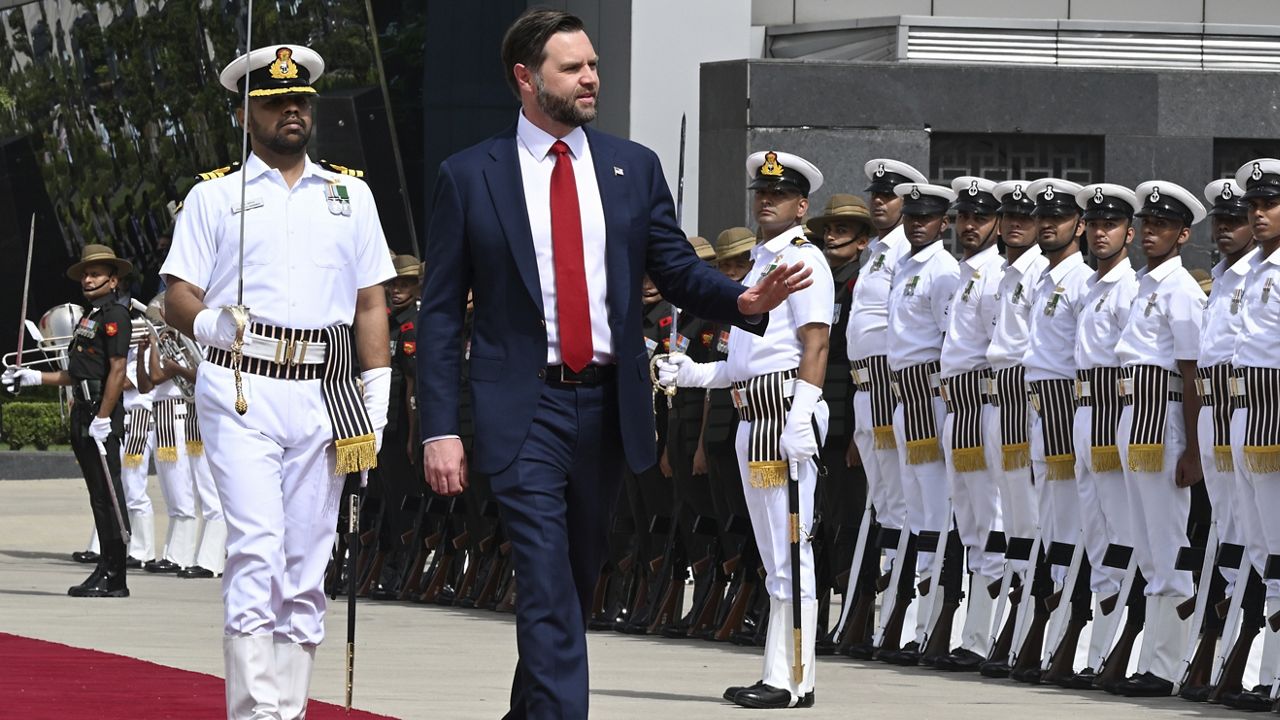President Joe Biden was even-tempered as he began his previously unscheduled remarks before a group of press at the White House on Thursday evening.
In his comments, which centered on a Justice Department report investigating his retention and disclosure of highly classified materials in his post-vice presidency life as a civillian, Biden said he was pleased by the conclusion special counsel Robert Hur reached: that he should not face criminal charges.
He described the lengths to which he cooperated in the investigation, which he noted dated back more than 40 years, to his time as a freshly minted U.S. Senator in the 1970s. He contrasted his cooperation with that of former President Donald Trump’s seeming obstinance in a separate documents case.
Then he noted that the report questioned his memory and recollection of events, including Biden’s memory of his son Beau Biden’s 2015 death after a battle with an agressive form of brain cancer.
This is when the conference turned, and his temper flared.
"There’s even a reference that I don’t remember when my son died. How in the hell dare he raise that," Biden said, his voice darkening. "Frankly, when I was asked the question I thought to myself it wasn’t any of their damn business. I wear, since the day he died, every single day the rosary he got from Our Lady of —" he paused, leaving the parish unnamed, before moving on.
"The simple truth is that I sat for five hours, over two days of events, going back 40 years, the same time I was managing an international crisis," Biden said — the interviews, he said, came in the days immediately following the Oct. 7, 2023, attack on Israel by Hamas militants. "Their task was to make a decision about whether to move forward with charges in this case…and they decided not to move forward."
As far as any "extraneous commentary, they don’t know what they’re talking about," Biden said. "It has no place in this report."
His remarks Thursday were an uncommon occasion, both for its occurrence in the Diplomatic Reception Room — used generally for greeting foreign dignitaries and world leaders — and for taking questions from the press following his remarks.
The "extraneous commentary" Biden mentioned refers to instances citing his "limited memory" within the report. It cites his "limited precision and recall" during interviews with a ghostwriter, and states an opinion that, "at trial, Mr. Biden would likely present himself to a jury, as he did during our interview of him, as a sympathetic, well-meaning, elderly man with a poor memory."
"I’m well meaning, I’m an elderly man, and I know what the hell I’m doing," Biden said in a clash with a reporter referencing that line within the report. "I’m the President and I put this country back on its feat. I don’t need his recommendation."
He reacted with fury when a reporter suggested that polling shows Americans are, indeed, concerned about his age.
"That is your judgement, that is your judgement," Biden said, responding to a further question ("Why does it have to be you?" rather than another Democrat) that he is "the most qualified person to be President of the United States and finish the job that I started."
But when he was asked what he, in retrospect, would do differently with the documents from his vice presidency, Biden’s anger subsided.
"What I would have done is oversee the transfer of the material that was in my offices. I should have done that," he said, telling reporters that he thought boxes of documents were being moved to archives. "I didn’t know how half the boxes got in my garage until I found out staff gathered them up, put them together and put them in the garage in my home…I wish I had paid more attention to how the documents were moved and where."
As he left the podium, Biden overheard one last question from the press about the Israel-Hamas war, and turned back to the microphone.
In a slip, Biden referred to Egyptian President Abdel Fattah el-Sissi as the "president of Mexico," providing a gaffe in an otherwise compelling point about the situation in the Middle East.
“I think that, as you know, initially, the president of Mexico, Sisi, did not want to open up the gate to allow humanitarian material to get in. I talked to him, I convinced him to open the gate,” Biden said.
Less than two weeks after the start of the war in Gaza, Biden announced he had secured an agreement to allow up to 20 trucks of humanitarian aid into the Palestinian territory through the Rafah crossing after speaking with el-Sissi on his trip back from Tel Aviv.
Biden’s apparent mix-up of the two world leaders follows two similar occurrences in recent speeches in which the president claimed he spoke with France’s Francois Mitterrand and Germany’s Helmut Kohl – two former European leaders who are both dead.
Earlier on Thursday White House Press Secretary Karine Jean-Pierre defended the president’s apparent gaffes, arguing it is “common” for people to misspeak and making the case it “happens to all of us.”
She cited examples of times in which other public figures have confused names or countries, including House Speaker Mike Johnson and Fox News host Sean Hannity.
“Many people, elected officials, many people, they can misspeak sometimes,” Jean-Pierre said, noting that on Sunday, Johnson said “Iran” when he meant to say “Israel.”








